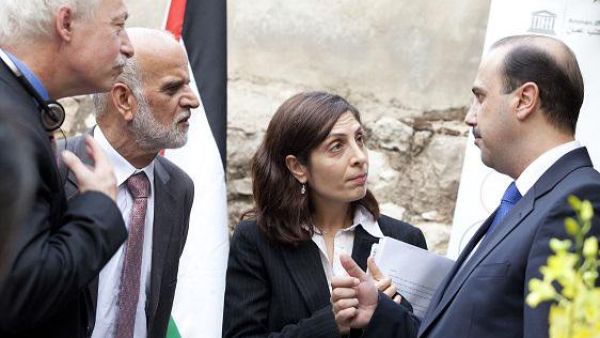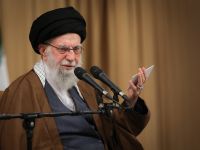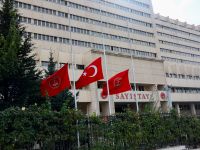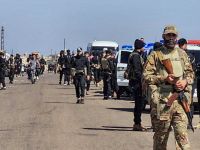Journalistic work regularly entails uncovering cases of gender discrimination, gender pay gap or sexism at work; and for the female journalists writing these articles, such challenges are far from alien, as they often suffer from the same plight themselves, including in Jordan.
Noted journalist Sawsan Zaideh is well aware of these obstacles, as she finally managed to impose herself in the competitive media sphere after several decades of persevering efforts. “It took me some 40 years, an undergraduate course in Syria and a Masters of journalism in the UK to start feeling like I was being respected for my qualifications and not for my body and age,” she told The Jordan Times recently.
In her early 40s, Zaideh is the lead researcher at local media organisation 7iber, which last year received the support of UNESCO International Programme for the Development of Communication (IPDC), the only UN multilateral forum designed to mobilise the international community to discuss and promote media development in developing countries.
The programme works on providing support for media projects globally and on seeking an accord to “secure a healthy environment for the growth of free and pluralistic media”, according to a UNESCO official.
“Gender equality is one of UNESCO’s top priorities and the organisation has been at the forefront of efforts to support women’s and girls’ rights, empowerment and gender equality across all domains, including communication and information,” the official told The Jordan Times.
In 2017, Jordan’s 7iber received an IPDC grant, through which it has undertaken research supporting media assessments, based on UNESCO’s Gender Sensitive Indicators for the Media.
“This project will help produce concrete findings and comprehensive recommendations on how to foster balanced and fair gender portrayal in media content in Jordan,” the UNESCO representative said, adding “it will also provide a benchmark for other Arab countries to assess their gender equality in media operations and content.”
The findings will be available for civil society and governments to help them design their media and gender development programmes, forming a “credible and scientific source of information for journalists and media outlets”.
For Zaideh, this project is “a first step” on a very long path. While the successful media professional has much to celebrate, she said that “the hallmarks of discrimination are embedded within her professional experiences”.
“More than half of journalism students are females but, when one looks at the numbers of women working in this field, there is a gender imbalance with men enjoying the most interesting positions,” she pointed out, shedding light on “a lack of female representation in middle management and editorial roles in Jordan, with women chiefly working as reporters”. Besides, she said female journalists are often “forced to work much harder” than their male colleagues to prove themselves, while accepting reduced salaries.
She recalled watching her supervisors consistently give new and exciting opportunities to men. “My family and my husband, who is a journalist too, encouraged me to keep going, so I worked tirelessly to become a manager at a journalism outlet in Amman,” Zaideh remembered.
Despite their best efforts, women are often less likely than men to be promoted to leadership positions, “which reinforces the dynamic of men holding a disproportionate amount of decision-making authority in such workplaces”, the UNESCO official said, noting that “these skewed power dynamics set the stage for the type of institutionalised discrimination that Sawsan says she faced, where women are objectified rather than seen as valuable contributors in their fields of expertise”.
Within these roles, there is no tremendous scope for analysis or research and, as women age and are no longer the “bright, young faces” of the news, they often struggle to transition to alternate journalistic positions.
Zaideh recalled that, “in the end, the role I achieved did not feel like a good fit”. So she started freelancing and landed at 7iber. “For me, this was a magic solution,” she remembered.
A media organisation and online magazine based in Amman, 7iber works on creating informative multimedia content, providing a platform for critical discussion, researching issues related to media, Internet governance and digital rights, as well as conducting training on digital media, according to its website.
Through IPDC, UNESCO aims to ensure that the views of all members of society — irrespective of gender — are reflected in the media, so as to promote its mandate of “a free flow of ideas by word and image”, a UNESCO statement read.
“7iber’s assessment will work towards this goal, encouraging media organisations to develop gender-responsive internal institutional policies, including gender-responsive editorial policies in journalistic content,” the UNESCO official said, noting that the programme comes in line with the implementation of the 2030 Agenda for Sustainable Development in Jordan, whose fifth goal seeks to “achieve gender equality and empower all women and girls”.
This article has been adapted from its original source.









